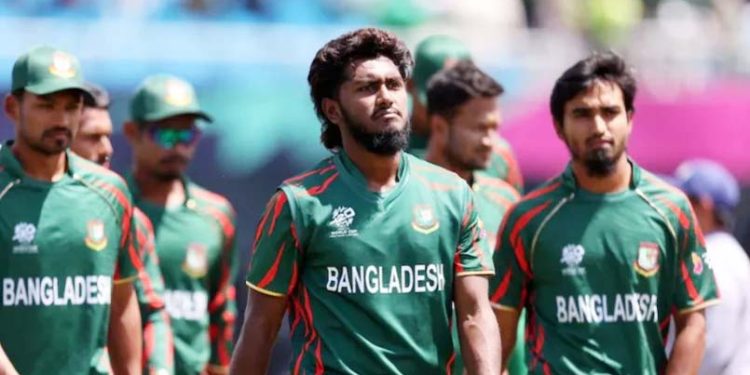UNB– One could argue that Bangladesh’s three wins in the ongoing edition of the T20 World Cup in the USA and West Indies marked their most successful tournament to date. However, their surprising failure to chase a modest total against Afghanistan in the Super Eights, coupled with questionable batting tactics in that match, ultimately led to a disappointing overall performance.
Ahead of the World Cup, both the captain of the Bangladesh team, Najmul Hossain Shanto, and the head coach, Chandika Hathurusingha, tried to keep expectations low. They said that Bangladesh’s goal was to qualify for the Super Eights. And with some sloppy performances, they managed to ensure that with wins over Sri Lanka and two associate teams — Netherlands and Nepal.
Now, whatever they may get will be a bonus. These statements set a low bar even for the players. They proved against Afghanistan that they don’t have the mindset to win a match even when they needed to chase a small total.
A timid mindset ultimately resulted in a defeat in a match that just required chasing 115 runs in 12.1 overs to qualify for the semifinal, or at least a win in 20 overs. The target was even lower after rain hit the match — the revised target came down to 114 runs in 19 overs. Bangladesh failed to chase that, too.
After the defeat to Afghanistan, which saw the winners advance to the semifinal for the first time in their cricketing history, Bangladesh’s captain said after losing three quick wickets, they never expected to qualify for the semi, rather they played aiming to just win the match, which they also failed to do.
Shanto’s statement sparked controversy. Former Bangladesh captain, Tamim Iqbal, in his capacity as an expert for ESPNcricinfo said Bangladesh should have gone for the chase.
“They should have gone for the chase even if they were bowled out for 70 or 80,” Tamim said after the match. “They have lost anyway. But they had an opportunity to do something very special, and this kind of opportunity doesn’t come very often.”
He also questioned the intent that Bangladesh showed while chasing a small total.
Following the heartbreaking defeat, Bangladesh’s captain apologized to the nation, and he pointed fingers at the batters who failed to live up to expectations throughout the event.
“We have left everyone disappointed,” he said. “We have disappointed those who follow our game, and who support us. On behalf of the team, I’m sorry to them.”
Shanto himself had a forgettable tournament as a batter. In seven innings, he scored only 112 runs, with the highest score being 41. Of 7 innings, he failed to pass double-digit scores in 4 innings.
Just this one defeat erased whatever good they did in the previous part of the World Cup, sparked controversy about their mindset, about their future. And at the same time, a big question came to the fore: what is next for Bangladesh cricket?
Considering the past, the expectation for change should be limited. The Bangladesh Cricket Board (BCB) is nearly silent about the situation. But experts say that Bangladesh should go for a new team under a new captain and management— a demand that often rises after every World Cup, which Bangladesh often fails to meet.



















